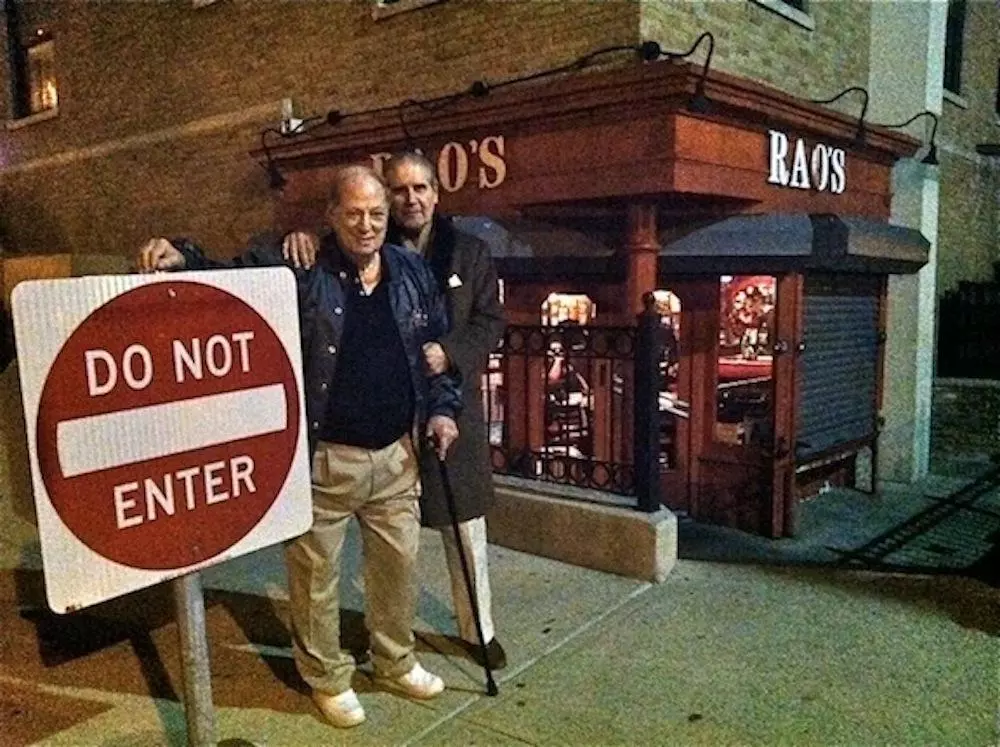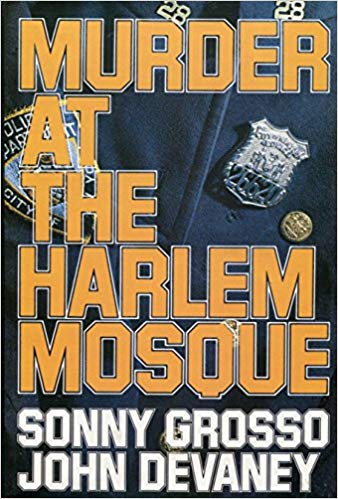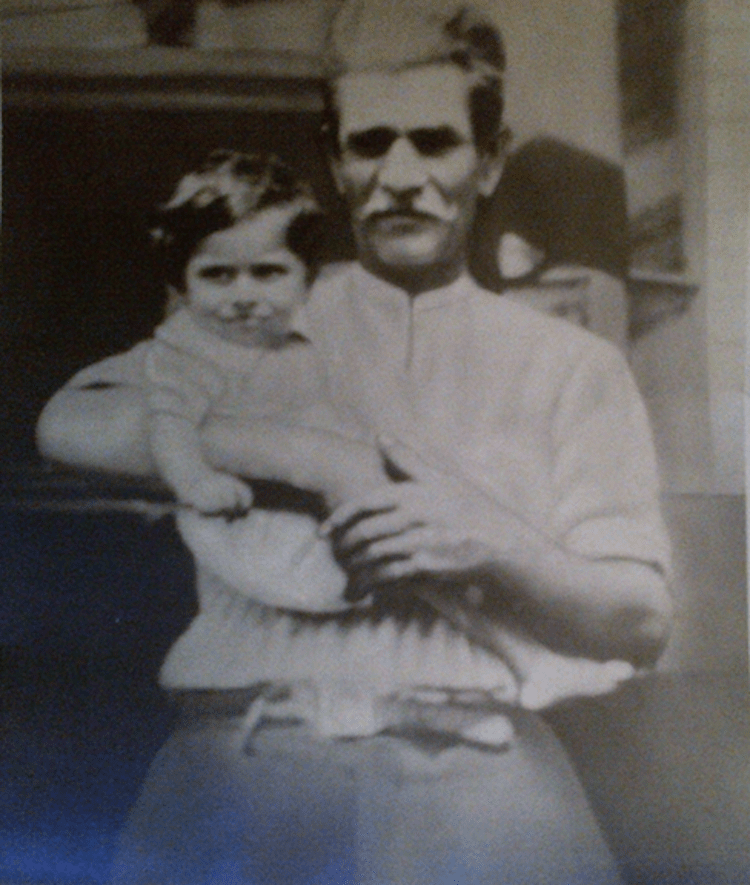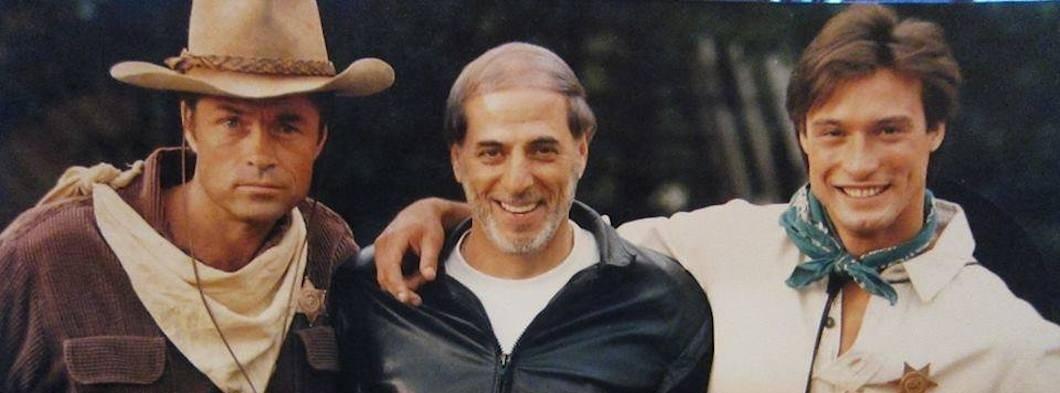Here’s another excerpt from the fascinating and upcoming memoir, Harlem to Hollywood, My Real-to-Reel Life by French Connection detective Sonny Grosso. Buckle up!
Chapter 2 —Where’d We Be without Our Grandfathers, Fathers and Mentors?
A wise man once suggested he came to “understand the importance of fatherhood through its absence” both in his life and in the lives of others. For those of us not fortunate enough to have a dad present throughout our early lives, fatherly mentors can help replace that void and can come in various guises. Grosso lost his own father early then became a father figure himself to more young cops and showbiz aspirants than you can count.
For example, he mentored cadets at the NYPD Academy. He put on informative and sometimes hilarious skits — using a cardboard cutout squad car — and showed the recruits “what’s what,” like how to safely pull someone over.
Now long retired from the force, Grosso has made several off-duty arrests. He still carries his shiny gold detective shield and his old-style revolver, the very one that Al Pacino as Michael Corleone used as a stunt gun in the famous restaurant shooting scene in another Oscar-winning movie, The Godfather. Grosso consulted on that classic and also appeared in the film as, you guessed it, a cop.
His father used to take wide-eyed Grosso to see the Yankees and Joe DiMaggio from the bleachers. But as he lost his father early, who stepped up to the plate for him?
“My father, Benny, was a great guy. He coached our softball team. That’s why I wanted to be play for the Yankees. I think every kid felt that way. Everyone loved Benny, but he had a sudden heart attack, when he was bowling with his team, and passed away when I was 14, leaving our mother, me and three sisters. I didn’t want to go back to school, there was no more living for me. I was so mad at God. I grew up in East Harlem and there were criminals around. But I credit my grandfather and my uncle Danny who made me go back to school. My uncle even offered to pay for my college. Turned out he died before I got to college—ain’t that how it goes?!”
But growing up alongside wiseguys and in a tough neighborhood, was he tempted to go to the dark side after his dear father’s passing?
“Sure I did. I was mad at God after my Pa died, who wouldn’t be. And, growing up, I did my share of things, I wasn’t a goody-goody. But I never disrespected anybody. I never robbed anybody. When we were young, we used to talk about the bad guys in our neighborhood who’d send some kids to get their car washed and then let you keep the change. Pick up a dime newspaper — give you 20 bucks and let you keep the change. They were part of those conversations we had. But fear of our fathers and God kept us in line.”

Grosso with boyhood pal Judge Eddie Torres at Rao's in Harlem
Grosso also had a sort of father/son relationship with “Tough” Joey Rao, who had partnered with guys like Dutch Schulz and who was the “godfather” of his neighborhood and even turned up at his father’s funeral.
“Joe Rao and his brothers owned Rao’s Restaurant on 114th Street, where you still can’t get in unless invited and where I am a regular (club member). Joe was a big shot in our neighborhood, and his restaurant was where all of the wiseguys would drop by. But when my father died, he came to Farenga’s funeral home with his coat draped over his shoulders — that classic look you see in the movies because it came from real people like him — and everybody’s whispering, ‘Look, it’s Joe Rao!’ And he’s got two guys, like two tree-trunks, beside him and my whole family is sitting in the front row. He takes my mother’s hand, kisses it and says, ‘We take care of our own in this neighborhood. So anything you need, you call.’ Then he points to his two guys and they go over and kneel down in front of my father’s casket. I said to my sister, ‘Holy, this guy’s got to be big, he’s even got guys to kneel for him!’ Then he points again to one of his guys and then gestures to my mother. The guy goes into his pocket, takes out an envelope and gives it to her. My mother doesn’t even know what to do. She was like fainting all over herself. And he says a couple of more things in Italian to her, then says goodbye and they left just as smoothly as they’d come in. That was another thing about people in the neighborhood, they would all pay something. There was a thing called ‘la busta’ and that is everybody would collect money and put it in an envelope and give it to the mother or wife, like at a wedding. You see that in the wedding in the Godfather movie which I consulted on. Here they give your mother a mass card, and inside will be a donation — twenty dollars, hundred dollars whatever they could afford in those days. Who the hell could afford anything, you know?
“So, after taking la busta, my mother sits down and says, ‘What am I going to do? I’m even afraid to look inside.’ So when we look inside, there was like $400 — it would probably be worth ten times that today. I became a cop, seven years later, at 21 years old. My rookie salary was $63 a week. This was like two months work. She went over to her oldest brother and tells him she doesn’t know what to do with it. My uncle says, ‘Where’s your bag?’ He opens it and sticks the envelop in the bag saying, ‘That’s what you do with it.’”
With his single mother struggling to keep her family safe and fed, security was key for Grosso. Even though he explains later about the “mistake” that got him into the Police Academy, he further explains his wish to help his family, being the only man in their home. He recalls:
“With the loss of my father, security became important to me. Look, it was the same way for most of the guys. Becoming a cop was a paying job with a pension and security. And later I used to tell it straight to the young police recruits. That if a guy tells you he came on the job to stamp out drugs or to make this a better world, those are the kind of lines they only say in the movies. If you’re smart, you know you’re not going to make a dent — maybe some people’s lives you can help — but you’re not going to change the way the world thinks and acts. A pension is what was important to me to help my single mom with four kids.”
When he joined the NYPD, he quickly became one of the youngest first grade detectives and with The French Connection, he soon helped lead the biggest drug bust in NYPD history. And, he later passed on that knowledge to cadets in the Academy.
“I’d tell the rookies that we go about our job the way most people go about their job. Every doctor who first cuts open a human body gets used to it. Just like us, when handcuffing suspects and throwing them in the cage, it was traumatic at first. But it’s your job, just like doctors get used to the horrors of sickness and blood, it’s traumatic at first, but somehow you learn to cope. I’d tell the cadets, you got to get over the shock of it, or else you can’t be a doctor or a nurse or a fireman…and especially a cop because our job requires us to run towards the problem while everyone else is running away from it.
“You know, people often forget that the cop out there is somebody’s father, brother, sister, husband or wife. We’re not from another planet. We’re people just like them with the same issues as everyone else but we’re sworn to do something about those crimes out there and those unlawful people who commit them.”

One of those young policemen that Grosso had helped mentor, Phil Cardillo, was involved in a tragic shooting in the infamous incident at Louis Farrakhan’s Harlem Mosque. This incident happened in 1972, the very same week that The French Connection won five Academy Awards. Grosso says:
“I was already working part-time as a technical advisor on movies and television. And, the mosque incident, which I wrote about in my book, Murder at the Harlem Mosque, was the last big case I worked on before I retired in 1976. Patrolman Phil Cardillo was a good young friend of mine. I let him study my memo books and gave him advice whenever I could. On that fateful day, he and his partner responded to what seemed a legitimate radio call for a cop in trouble at the mosque. They were met with fierce resistance, and sadly Cardillo was beaten and shot with his own gun and later died. No one was ever convicted of his murder, but finally over 40 years later through a lot of persistence, Cardillo’s family finally got recognition for his sacrifice. The street in front of the new Police Academy in College Point, Queens was renamed, Ptl. Phillip Cardillo Way, in honor of him. It’s something at least to show his family what we all thought of this kid — unlike the then-Mayor John Lindsay and Patrick Murphy, the police commissioner at the time, who didn’t even show up at his funeral!”
Former New York police commissioner William Bratton said in 2015, that their absence was “nothing short of shameful” adding, “I make a promise to officers on behalf of the Department, that if they should be injured or die in the line of duty, that we will not forget."
Grosso, who had been mentored himself in the entertainment business by the likes of Oscar-winning people like producer Phil D’Antoni and director William Friedkin, continued his own role as mentor in the TV and movie business. He first went on to work as a technical advisor on several TV series including Kojak and Baretta, and TV movies like Contract on Cherry Street with Frank Sinatra. He then became a producer on The Dain Curse and A Question of Honor.
Then through his mid-1980s CBS late night cop show, Night Heat, he gave many actors their first big US network jobs, including a teenaged Keanu Reeves and Eric McCormick of Will & Grace fame.
“My late producer mentor Phil D’Antoni (Bullitt, The French Connection) and I gave Richard Gere one of his first jobs in the TV movie Strike Force in 1975. And, Timmy Van Patten acted on two of my shows before becoming a director and earning Emmy praise for The Sopranos. Here’s a story about Reeves, who played a mugger in two Night Heat episodes in 1985. Keanu went over with another actor to my director. They only had one line between them, and we gave it to the other guy, not Keanu. They’re standing around the director and he says, ‘Yeah, what’s up, guys?’ – ‘We’d like to talk to you.’ – ‘Talk about what?’ – ‘Our characters’ motivation.’ The director looks to me and he’s thinking, ‘What the hell?!’ Then, he says something like: ‘Okay, here’s how we do it. You (Keanu) play the tall mugger, and you (the other actor) play the short mugger.’ And then he walked away. That’s not quite the way I handled things. Anyone on my set knew they could always come to me with a problem. Since I was the boss and like a parent, maybe I had to see all sides. Like the Pulitzer Prize-winning poet, Robert Frost, said, ‘The father is always a Republican toward his son, and his mother’s always a Democrat.’

Young Sonny with wise Grandfather Antonio Vetrano
And, Grosso also recalls his grandfather’s words when he needed some words of wisdom:
“My grandfather, Anthony, who lived in Asbury Park, always had these great sayings he passed onto me, like: ‘Whether you make love or sauce, do it with every fiber in your body.’ Or, ‘When the chess game is over, the king and the pawn go in the same box.’ Those words helped me back then, and they ring true today.”
Cover Photo taken on The Gunfighters set in Alberta, Canada starring Art Hindle (l), with executive producer Sonny Grosso (c), and actor Tony Addabbo (r) — photo by Jean Marc Desrochers.
Stay tuned for the upcoming book, Harlem to Hollywood, My Real-to-Reel Life by French Connection detective Sonny Grosso. Ashley Jude Collie’s new dystopian novel, REJEX, is available on Amazon (US) and Amazon (UK), and Amazon worldwide.










Leave your comments
Post comment as a guest